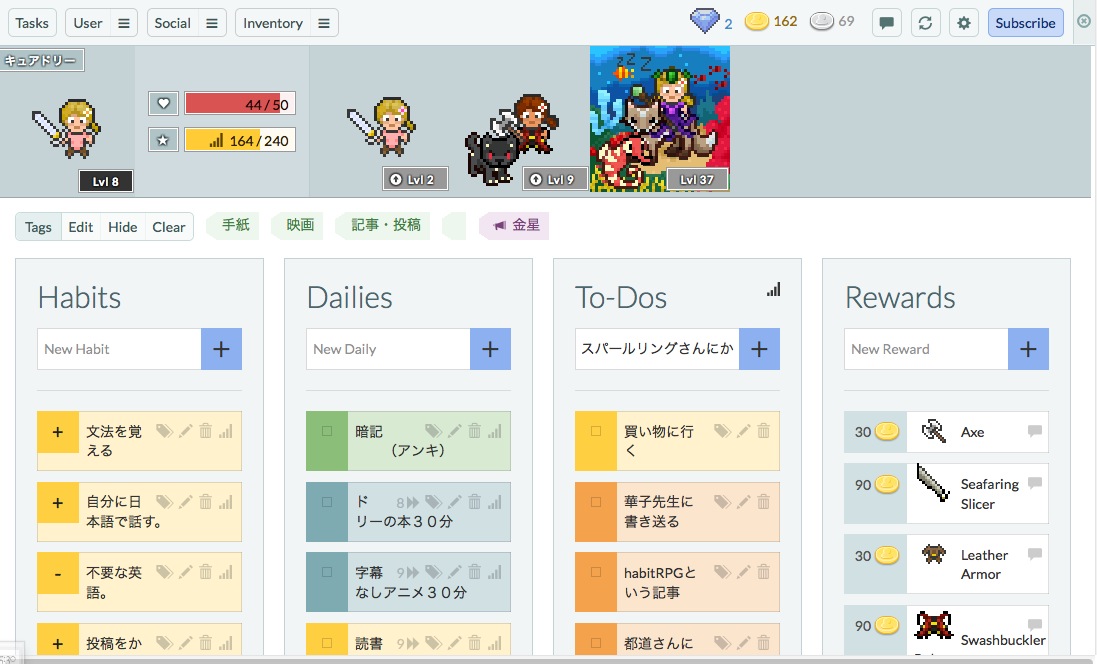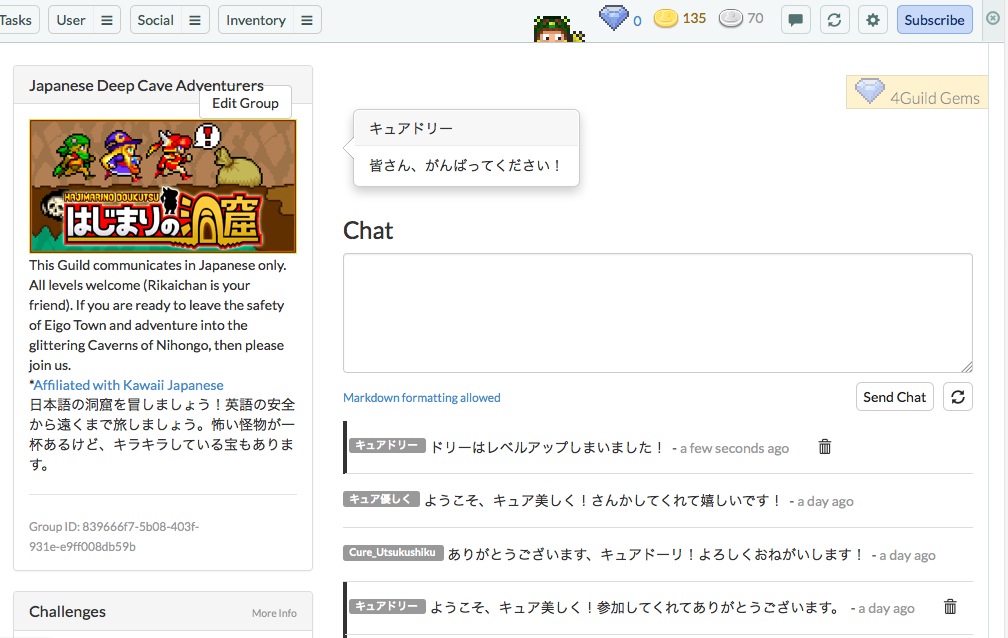Like many people this time of year, I am busy with holiday preparations. I am much further behind on my gift knitting/crocheting than I would like to be, and we are hosting the family holiday dinner this year. I have started decorating, but there is still quite a bit of decorating (and cleaning) to do. With all of this going on, it is tempting to back off on my Japanese studies during this time.
 This being said, I think that this is a temptation to avoid. I have gotten into a rhythm with my studies that I do not want to interrupt. Also, with language learning, I think that it is really easy to lose ground. I have noticed that even after one day using mostly English, my Japanese is worse the next day. I can only imagine what would happen if I interrupted my studies for a few weeks.
This being said, I think that this is a temptation to avoid. I have gotten into a rhythm with my studies that I do not want to interrupt. Also, with language learning, I think that it is really easy to lose ground. I have noticed that even after one day using mostly English, my Japanese is worse the next day. I can only imagine what would happen if I interrupted my studies for a few weeks.
Still, there is only so much time in a day, and holiday preparations are important. Luckily though, there are ways to adjust my study schedule to accommodate the holidays. While I have less time for active study, I have many more opportunities for passive learning. It is quite easy to knit and crochet while watching Anime, and I can listen to Japanese while I am cooking, cleaning, and decorating.
For myself, I find that it is extremely important to use a time management tool, especially busy times. I continue to use HabitRPG as my tool. Without such a tool, I find it too easy to get distracted by my 気分 (kibun, or feeling or mood). As is so clearly illustrated in the kanji, one’s mood is often the spirit (気) of the moment (分). During busy times, my spirit of the moment is usually stress and nervousness, making it a really bad time to be making decisions about what I should be doing when. Without a time management tool, I find myself running about in circles feeling busy, but often not really accomplishing anything. It is quite likely that in the spirit of the moment, my Japanese studies would be the first tasks to get lost.
Instead, with the advice and guidance of my senpai, I made decisions about my goals during this season of busy-ness, which I then recorded on my HabitRPG. This way the decisions are already made, and I do not have to worry about them while I am stressed and busy. I can simply follow the schedule that has already been set.
HabitRPG is set up in such a way as to make it quite easy to readjust my schedule during this time. I chose not to eliminate any of my active study dailies; however, I did make many of them due fewer days of the week. I increased my daily minimum for passive study tasks, such as Anime watching and listening. I used the checklist feature to do this. I also increased my daily minimum for handcrafting (knitting and crocheting). I have positive Habits of extra watching, listening, and handcrafting. This makes a nice combination as handcrafting and watching/listening go well together as multitasking activities. If there are times when I have met my handcrafting requirement but still need to do more watching/listening, I might do extra handcrafting while watching/listening (and vice versa).
Because of the added listening requirement, I spend time listening to Japanese, rather than holiday music in English. On my HabitRPG, listening to music in English is a reward that I have to pay for. I considered relaxing that during the holiday season, but I chose not to. I am working on keeping my mind in Japanese, and the last thing I need is catchy holiday music (in English) crowding out the Japanese. I have not yet found Japanese holiday music (although I would like to). I did borrow some holiday music in Swedish from my grandmother, and my spouse found music in Latin for me, which I can listen to if I have met my Japanese listening requirement for the day. While it is not Japanese, my Japanese is far better than my Swedish (of which, at best, I know a few words and phrases), and I do not know any Latin at all. As a result, neither of those languages are likely to crowd out Japanese, like English would.
I hope that some of these ideas are helpful, and please feel free to comment on your own strategies for maintaining your studies during busy times, such as the holiday season.


